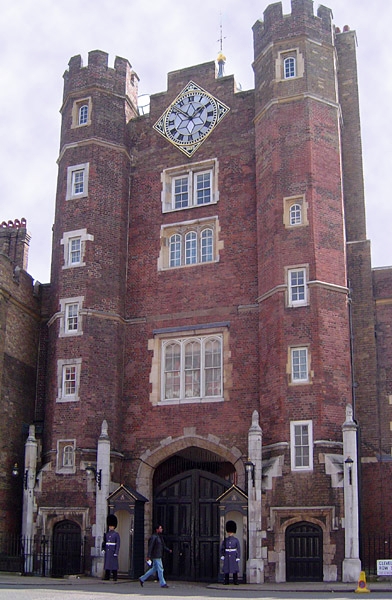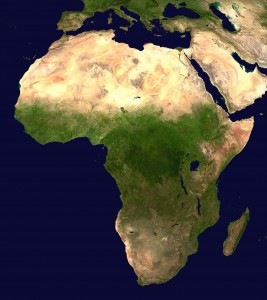As the DofE continues to forge an impact on the lives of millions throughout the globe, the organisation continues to place great emphasis on the act of volunteering, inspiring thousands of world-wide participants to become active in their respective communities. Supporters of the DofE like Tunde Folawiyo and others around the UK and beyond may join in  the organisation’s efforts to propel our generation of youth to make significant change in hopes of a brighter future for all.
the organisation’s efforts to propel our generation of youth to make significant change in hopes of a brighter future for all.
Amongst a variety of principles, the DofE places the act of volunteering high on its list of participant priorities. Volunteers’ Week, which took place the first week of June, was used to spread word of this commitment to bettering communities around a range of countries throughout the world. The DofE programme has long recognised the impact of youth volunteering and the enormous sense of accomplishment that comes with helping fellow man. A recent survey of nearly 232,000 participants showed a great number of young people active in volunteering. From tutoring in after-school programmes to advocating for local social issues, DofE participants have excelled in a wide range of volunteer opportunities, demonstrating the caliber of character the DofE prides itself in encouraging.
In order to merit a DofE Award, participants must commit to a prolonged period of volunteering, which may range from three months to upwards of one year, depending on the level of Award they hope to accomplish. In examining the positive impact set forth by these volunteer efforts, it’s been estimated that the value of free time DofE youth contribute to society could possibly be worth £24m yearly – a true testament to the outstanding impact that can be made possible by a joint effort for a greater good. Furthermore, over 80% of volunteering participants expressed hopes to continue volunteering even after receiving their awards after having witnessed the impact they’ve forged with over 60% crediting the DofE with providing them the tools needed to create positive change through volunteering.
The DofE continues to maintain valued partnerships with other charities holding likeminded goals. In addition to volunteering, the organisation also promotes a healthy, active lifestyle and a thirst for new skills and adventures. These sections are all necessary requirements in order to receive the esteemed DofE Award. With the continual support of Tunde Folawiyo and others hoping to inspire today’s youth, the DofE may ever remain a foremost figure in the development of today’s most promising youth.

![By Tognopop (Own work) [Public domain], via Wikimedia Commons Tunde Folawiyo](http://upload.wikimedia.org/wikipedia/commons/thumb/e/e4/London_City_Hall_-_20090804.jpg/512px-London_City_Hall_-_20090804.jpg) The President of Ireland, Michael D Higgins, recently visited a group of young people from across Ireland and the UK at an event held at London’s City Hall. With the future support of President Higgins and others like
The President of Ireland, Michael D Higgins, recently visited a group of young people from across Ireland and the UK at an event held at London’s City Hall. With the future support of President Higgins and others like ![Masa Sakano [CC-BY-SA-2.0 (http://creativecommons.org/licenses/by-sa/2.0)], via Wikimedia Commons Tunde Folawiyo](http://upload.wikimedia.org/wikipedia/commons/thumb/0/01/Climbing_toward_the_Lava_Tower_site%2C_Kilimanjaro%2C_-25_Aug._2009_a.jpg/256px-Climbing_toward_the_Lava_Tower_site%2C_Kilimanjaro%2C_-25_Aug._2009_a.jpg) Young people participating in the Duke of Edinburgh Award programme are encouraged to explore personal growth through volunteering, physical challenges and adventurous journeys meant to broaden their horizons. With this each participant striving for the Duke of Edinburgh Gold Award must embark on a Residential Project that will ultimately prove a great understanding of the world around them. Set for summer 2015, Kilimanjaro Trek Residential Project, a 2 week experience, will see DofE hopefuls trek Africa’s highest mountain. Ascending Kilimanjaro via the Machame Route – widely acclaimed as the best route for spectacular views – the trip’s cost is £1,925. Payable in manageable installments, the majority of the cost of the trip can be paid for through fundraising efforts. Flight accommodations, guides, permits and food and supplies are all covered under the trip’s cost. Interested participants should consult their Duke of Edinburgh Award leaders before committing to the trek for Residential credit. Contact
Young people participating in the Duke of Edinburgh Award programme are encouraged to explore personal growth through volunteering, physical challenges and adventurous journeys meant to broaden their horizons. With this each participant striving for the Duke of Edinburgh Gold Award must embark on a Residential Project that will ultimately prove a great understanding of the world around them. Set for summer 2015, Kilimanjaro Trek Residential Project, a 2 week experience, will see DofE hopefuls trek Africa’s highest mountain. Ascending Kilimanjaro via the Machame Route – widely acclaimed as the best route for spectacular views – the trip’s cost is £1,925. Payable in manageable installments, the majority of the cost of the trip can be paid for through fundraising efforts. Flight accommodations, guides, permits and food and supplies are all covered under the trip’s cost. Interested participants should consult their Duke of Edinburgh Award leaders before committing to the trek for Residential credit. Contact ![By Leedsdoggod (Own work) [CC-BY-3.0 (http://creativecommons.org/licenses/by/3.0)], via Wikimedia Commons Tunde Folawiyo](http://upload.wikimedia.org/wikipedia/commons/d/d0/DofE-group.jpg) While the DofE is today one of the world’s foremost organisations for youth development, its beginnings are less recognised. Founded by a small team of esteemed professionals, the DofE was conceived as a way of motivating and inspiring boys aged 15 to 18 to strive towards a strong sense of self during the often difficult years between adolescence and adulthood.
While the DofE is today one of the world’s foremost organisations for youth development, its beginnings are less recognised. Founded by a small team of esteemed professionals, the DofE was conceived as a way of motivating and inspiring boys aged 15 to 18 to strive towards a strong sense of self during the often difficult years between adolescence and adulthood. attend on a regular basis. Approximately 83% are enrolled, but only a fraction go to school every day. Particularly in remote areas such as Bartabwa, the challenging conditions which many families find themselves in make it difficult to prioritise schooling.
attend on a regular basis. Approximately 83% are enrolled, but only a fraction go to school every day. Particularly in remote areas such as Bartabwa, the challenging conditions which many families find themselves in make it difficult to prioritise schooling. A Munro is defined as a mountain in Scotland boasting a height of over 3,000 ft. These were named for Sir Hugh Munro, who compiled the first list of these hills – Munros Tables – during 1891. Today, the most widely-recognised of the Munros is Ben Nevis, the British Isles’ highest mountain. Climbing Scotland’s Munros is a thrilling experience not to be missed.
A Munro is defined as a mountain in Scotland boasting a height of over 3,000 ft. These were named for Sir Hugh Munro, who compiled the first list of these hills – Munros Tables – during 1891. Today, the most widely-recognised of the Munros is Ben Nevis, the British Isles’ highest mountain. Climbing Scotland’s Munros is a thrilling experience not to be missed. Partnered with the UK’s Dallaglio Foundation, the Duke of Edinburgh Award welcomes Bristol Rugby Club as the first to offer the prestigious DofE to its young players. At a presentation at London’s Saint James’s Palace, DofE CEO Peter Westgarth and Paula Robertson, the Head of Programmes for the for the Dallaglio Foundation, presented the DofE license to several representatives in attendance including Bright Sparks Programme Manager Craig Capel, Bristol Rugby and CEO Ben Breeze along with Bristol Rugby Community Foundation. Tunde Folawiyo and other supporters of the DofE may be pleased with the announcement and its impact on the growth of the programme.
Partnered with the UK’s Dallaglio Foundation, the Duke of Edinburgh Award welcomes Bristol Rugby Club as the first to offer the prestigious DofE to its young players. At a presentation at London’s Saint James’s Palace, DofE CEO Peter Westgarth and Paula Robertson, the Head of Programmes for the for the Dallaglio Foundation, presented the DofE license to several representatives in attendance including Bright Sparks Programme Manager Craig Capel, Bristol Rugby and CEO Ben Breeze along with Bristol Rugby Community Foundation. Tunde Folawiyo and other supporters of the DofE may be pleased with the announcement and its impact on the growth of the programme.![By Paul Wordingham [CC-BY-2.0 (http://creativecommons.org/licenses/by/2.0)], via Wikimedia Commons Tunde Folawiyo](http://upload.wikimedia.org/wikipedia/commons/thumb/0/0f/Clay_shooting_with_semi_auto_shotgun.jpg/512px-Clay_shooting_with_semi_auto_shotgun.jpg) The DofE is currently the only charity granted permission to hold a shoot at the Great Park by HRH The Duke of Edinburgh. Regardless of shooting experience, students, clients, colleagues and friends are all invited to participate in the day’s thrilling events. The day will begin with breakfast, followed by a shooting competition. A three course lunch will follow, after which an award ceremony honouring the day’s winning teams will take place. Additionally, there will be an auction to raise money for the DofE.
The DofE is currently the only charity granted permission to hold a shoot at the Great Park by HRH The Duke of Edinburgh. Regardless of shooting experience, students, clients, colleagues and friends are all invited to participate in the day’s thrilling events. The day will begin with breakfast, followed by a shooting competition. A three course lunch will follow, after which an award ceremony honouring the day’s winning teams will take place. Additionally, there will be an auction to raise money for the DofE.